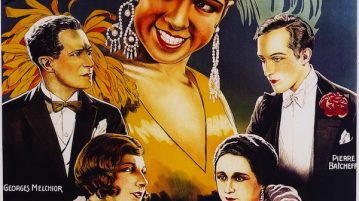Parenthetically Speaking
(What I Did Wrong) is a road novel that never leaves New York.
MoreSeptember-October 2006
(What I Did Wrong) is a road novel that never leaves New York.
More
Her [Mary Wollstonecraft] great book-A Vindication of the Rights of Women-was published in 1792 when she was 33. Three years later she began her great experiment: a relationship with William Godwin, …
MoreBefore Night Falls, the memoir by Reinaldo Arenas, gay Cuban novelist and poet, political dissident and prisoner, foe of Castro’s repressive regime, was published posthumously in 1993 to immediate acclaim. … Several of my gay friends were reading the book and enthusiastically recommended it to me. One of them finally put a copy in my hands and I read it; instantly drawn in, I too fell in love with Arenas and his story, so engagingly told, so full of adventure, vivid personalities, sex, escapes, suicides, betrayals. I was gushing about it to a friend who said, “Why don’t you turn it into an opera?” Reflexively, I said that was impossible: far too episodic, with way too many characters. How could Before Night Falls possibly be staged?
More“The composer’s success lies less in comprehending the words he is setting than in feeling them musically, and in being able to convince us of the necessity of his feeling.”
– Ned Rorem in Pure Contraption (1974)
MoreOPERA QUEENS are not in short supply, but gay men who love Lieder seem to be few and far between. The German word Lieder is the plural of Lied, which means simply “song.” But it has acquired a particular association, especially among English speakers, with the Romantic German art song. Mozart and Beethoven may be considered the earliest composers of Lieder, though the genre only came into its own with Franz Schubert, who was followed by Robert Schumann, Johannes Brahms, Hugo Wolf, Richard Strauss, and others.
MoreSCHUBERT DIED in November 1828, long before his final resting place, the Viennese cemetery known as Zentralfriedhof, was opened in 1874. At first, he was buried in the local cemetery of Währing, near the grave of Beethoven, whom he had idolized. In 1888, the remains of both composers were transferred to the Zentralfriedhof, an occasion marked by festivities that included thousands of amateur choral singers. …
More
BEAUTIFUL, charming, talented, and celebrated, the toast of Europe and South America during the heyday of her career, Josephine Baker was born in a black slum area of St. Louis in 1906. …
MoreAIDS has been a plague since 1982, although officially it never has been called one. I was recently asked by The New York Times to participate in a public forum entitled “AIDS at 25: What next?” I was not allowed to make the following remarks
MoreThe following is excerpted from Listening to the Sirens: Musical Technologies of Queer Identity from Homer to Hedwig, by Judith A. Peraino. University of California Press, Copyright 2006.
MoreI REALLY WASN’T EXPECTING another novel from Joe Keenan. …
More